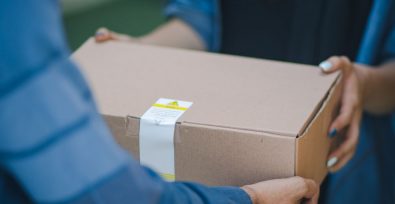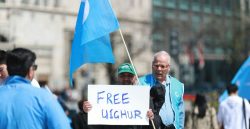U.S. lawmakers are concerned about an overwhelmed Customs and Borders Protection (CBP) which is charged with blocking imports linked to forced labor from entering the country, including enforcing the Uyghur Forced Labor Prevention Act (UFLPA).
The UFLPA has gained recognition worldwide as best practice for stopping forced labor goods imports as it operates on the assumption that all products manufactured in the Uyghur Region are produced with forced labor, requiring importers to provide “clear and convincing evidence” to prove otherwise.
However, the UFLPA includes a de minimis rule that allows imports below $800 to enter the U.S. without CBP scrutiny.
The law does not care about trifling things
According to congressman Earl Blumenauer from Oregon, the CBP could not fully do its job, even if it wanted to, due to the sheer volume of packages valued at under $800 entering the U.S. daily.
He sat down recently with the president of the Alliance for American Manufacturing, Scott Paul, and explained on Paul’s podcast that, historically, de minimis was established to help CBP avoid wasting their time on customs reports on souvenirs and the like.
“The term derives from the legal concept “de minimis non curat lex,” Latin for “the law does not care about trifling things.”
Today, imports below $800 amount to nearly 2 million packages daily. According to a U.S. Congress report, fast fashion online retailers, Shein and Temu, are the most downloaded shopping apps in the country. Their products combined account for 30% of all de minimis shipments to the U.S. alone.
This amounts to hundreds millions of dollars’ worth of goods per year – hardly a trifling matter.
“There are examples where, in some cases, there are packages that weigh 500 pounds that declare a value of $1. I mean, it’s just ludicrous. There’s no excuse for it.”
Jasmin Malik Chua at Yahoo News reports,
In 2016, Congress raised the threshold from $200 to $800, just as Shein started winning hearts and wallets in the United States. What resulted, Blumenauer said, was an “explosion” in direct sales to U.S. consumers under the de minimis provision. Today, some 2 million packages a day flow through the country’s borders under the exemption.
“They are shipped directly for under $800,” he said. “They’re exempt from taxes, tariffs, following rules and regulations, product safety, forced labor—they’re all exempt.”
Import Security and Fairness Act
Blumenauer is one of a bipartisan group of lawmakers trying to pass legislation blocking imports valued under $800 from non-market, such as China, from using the de minimis exemption.
He believes signs are “extraordinarily positive” that the Import Security and Fairness Act, introduced in June in Congress, will pass.
In the meantime, Freedom United and over 280 organizations, led front and center by survivors and families of current detainees, are advocating for companies to cut ties with the Uyghur forced labor system.
Join the movement today.






Freedom United is interested in hearing from our community and welcomes relevant, informed comments, advice, and insights that advance the conversation around our campaigns and advocacy. We value inclusivity and respect within our community. To be approved, your comments should be civil.